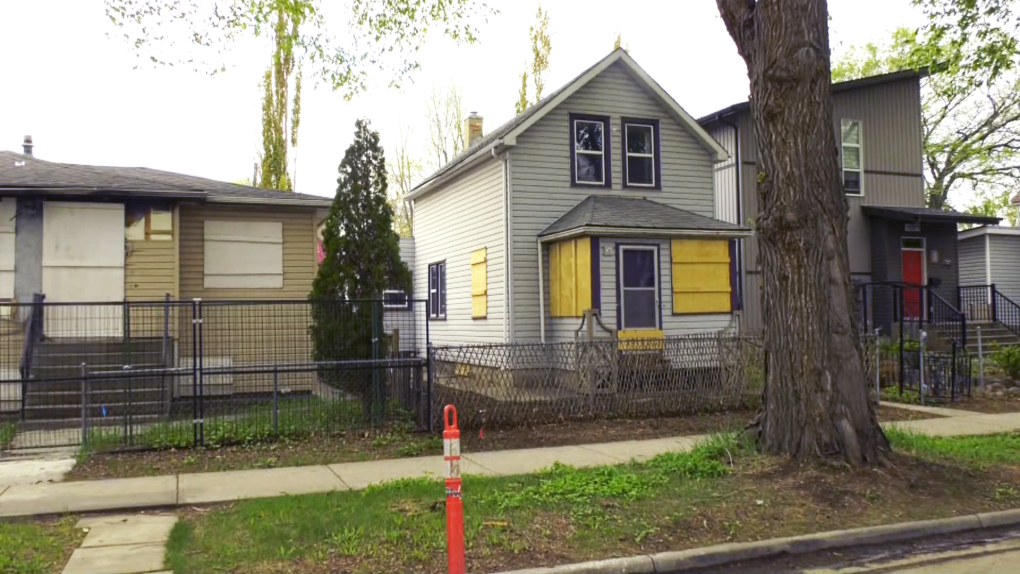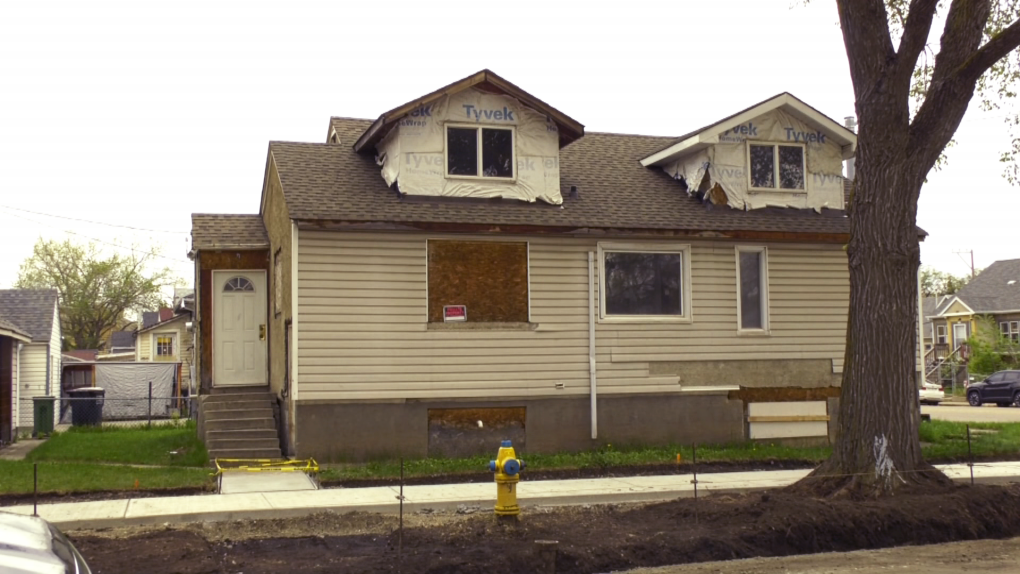The City of Edmonton says a new property tax subclass is helping in the cleanup of problem residential properties.
The derelict residential property tax subclass, which was established for the 2024 tax year, allows the city to tax owners of derelict properties at a rate about three times higher than the average residential property in 2024.
“I’m happy to say that 15 per cent of the almost 300 properties that we originally identified as derelict have already been cleaned up,” Cate Watt of the city told reporters at a media event on Tuesday. “Considering the subclass was only officially established in October of last year, this is an extraordinary achievement.”
Owners who restore their properties before Dec. 31 can avoid paying the additional tax.
The city says the tax subclass is an important piece of legislation to help keep costs down for other property owners.
“This will enable us to offset some of the higher costs that exist for providing services such as police, bylaw enforcement and fire safety. These are costs that are, on average, far higher than for other properties,” Watt commented.
“Early in my term, I was hearing from constituents on a weekly, sometimes daily basis about the consequences derelict and problem properties were having on the health, wellbeing and safety of our communities. Community members were asking us to do more,” Ward Métis Coun. Ashley Salvador said.
“The introduction of the derelict tax subclass is consistent with our continued focus on revitalizing the core and addressing problems before they happen.”
Watt says several conditions can allow the city to label a property as derelict, but the distinction can only be made as a result of the physical condition of a building.
“We can say it’s derelict because the structure is unsafe, because it’s unfit for habitation or because it’s in a dilapidated state, but we can’t address concerning behaviours that may be going on within that property,” she said.
 Abandoned houses in Edmonton. (Marek Tkach/CTV News Edmonton)
Abandoned houses in Edmonton. (Marek Tkach/CTV News Edmonton)
The property tax subclass is believed to be the first of its kind in Canada.
“We’re getting a lot of interest from other municipalities in Alberta and actually beyond to see if the successes that we’re seeing continue, and if it’s something that they would like to turn their attention to,” Watt said.
The city says it has multiple methods to address derelict properties in addition to the new tax subclass, including the Problem Property Enforcement Team, the Community Property Safety Team through Edmonton Fire Rescue Services, and the Residential Inspection Safety Compliance Team.
Those teams have a variety of roles, including securing vacant properties at risk of fire, clearing properties of debris and hazardous waste, and demolishing derelict buildings that have been assessed as unsafe to the community.
 An abandoned house in Edmonton. (Marek Tkach/CTV News Edmonton)
An abandoned house in Edmonton. (Marek Tkach/CTV News Edmonton)
“We take a multifaceted approach, and we apply the appropriate legislation to address these properties,” Chantel Perizzolo of the city said.
“Across all four teams, we did over 5,000 inspections in 2023, which resulted in nearly 700 tickets, (and) multiple orders directing property owners to clean or remediate their sites.
“The work that we’re doing and communicating with owners has led to the demolition of 270 properties by the owner themselves, recognizing from working with our team that [demolition] is the next best step to bring the property into compliance.”
Edmontonians can report a problem or derelict property by calling 311.